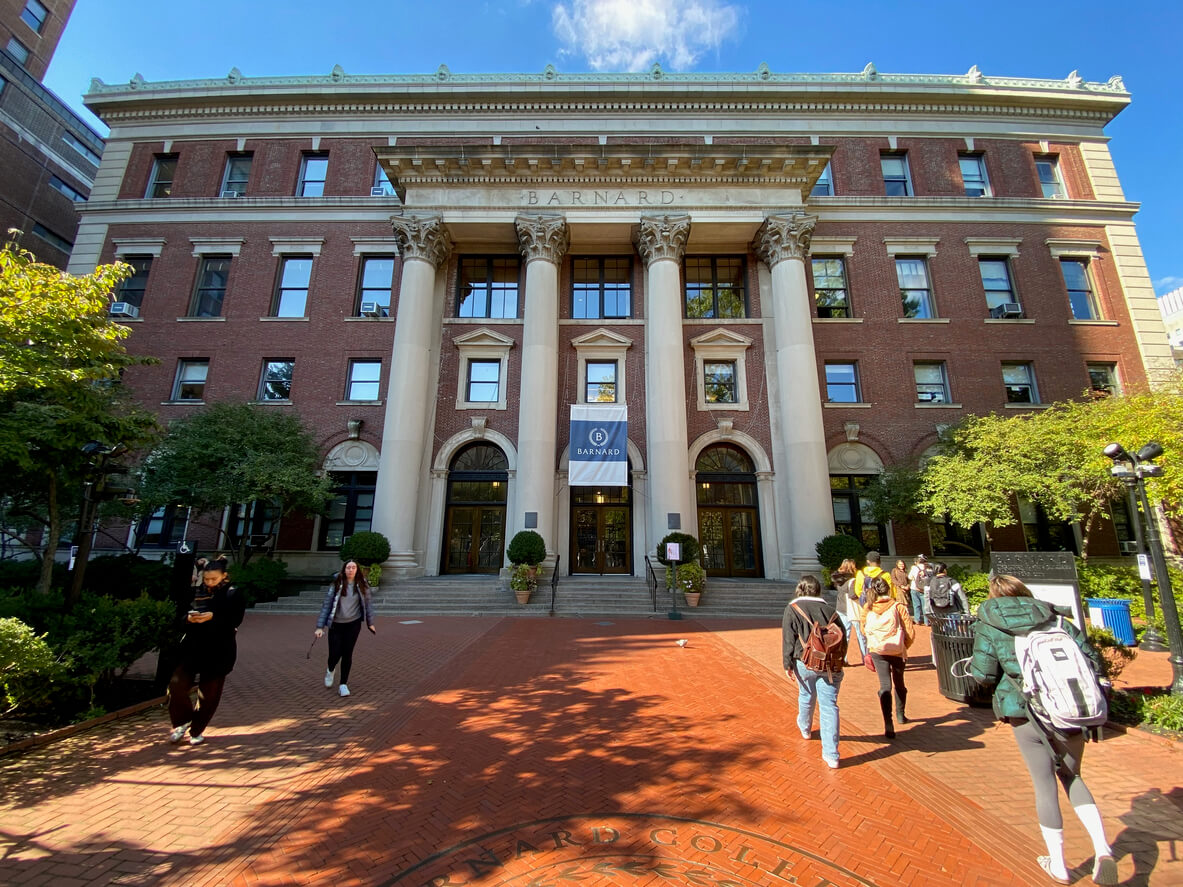Barnard College pro-Palestinian protest turns violent as campus tensions rise
Columbia University has been rocked since Oct. 7 by unrest over Israel-Hamas war

Pro-Palestinian protesters stormed Barnard College’s Milbank Hall on Wednesday. Photo by MDoculus/iStock
In a significant escalation of campus unrest, pro-Palestinian protesters stormed Barnard College’s Milbank Hall on Wednesday, injuring a college employee and prompting tighter security measures, according to school officials. The protest, which followed the recent expulsion of two students over a pro-Palestinian classroom disruption, is the most serious escalation on campus this year.
Masked demonstrators chanting “Every fascist state must fall” and “Palestine is Arab” banged on drums and waved Palestinian flags as they took over the building starting around 4 p.m. Wednesday. They called for Barnard, which is affiliated with nearby Columbia University, to reinstate the expelled students, grant amnesty to all protesters facing disciplinary action and hold a public meeting with President Laura Rosenbury and Dean Leslie Grinage.
A 41-year-old college employee was injured while trying to stop protesters from entering the building and was later hospitalized with minor injuries, according to Jewish Insider. Administrators gave protesters a 9:30 p.m. deadline to disperse, warning of “additional, necessary measures to protect our campus.” The demonstrators left around 10:30 p.m., after the college agreed to a meeting set for Thursday afternoon.
Overnight, Barnard announced it would restrict campus access to students and staff with Barnard IDs, tightening security as tensions remained high, reported The Columbia Spectator. A Barnard spokesperson said the protesters “encouraged others to enter campus without identification, showing blatant disregard for the safety of our community.”
New York City Mayor Eric Adams condemned the protest in a statement on Thursday, highlighting the city’s Jewish population. “Let me be very clear: I condemn, in the strongest possible terms, any protest that calls for an ‘intifada revolution,’ which is a call for violence against the Jewish State of Israel,” Adams said. “I know the conflict in the Middle East has left many of us grieving and angry, and while New Yorkers have every right to express their sorrow, that heartbreak does not give anyone the right to harass or threaten others, to physically harm anyone, or to trespass on private property.”
The protest came just days after Barnard expelled two students for disrupting a History of Modern Israel class at Columbia University. The students, reportedly masked and clad in kaffiyehs, entered the classroom, passed out flyers reading “Crush Zionism,” and banged on drums. Their expulsion has sparked renewed debate over the limits of campus protest.
Since the start of the war between Hamas and Israel on Oct. 7, 2023, pro-Palestinian and pro-Israel demonstrations have erupted on campuses across the United States, leading to clashes, administrative crackdowns and national political scrutiny. At elite universities like Columbia, Harvard, and the University of Pennsylvania, student activism has prompted resignations of top administrators, congressional hearings on antisemitism, and donor threats to pull funding.
At Columbia, the university’s president resigned unexpectedly mid-August, just before the academic year started, citing the toll on her family of criticism she faced for her handling of campus unrest, including antisemitism investigations, divided faculty and administrators, encampments, a siege of Hamilton Hall, and the cancellation of a traditional graduation ceremony. Born in Egypt, Minouche Shafik was the university’s first president of color, the first female president, and had the shortest tenure — just over a year — of any Columbia president in over 200 years.
Many Jewish students have reported feeling increasingly unsafe on campus, while Palestinian and Muslim students have accused Columbia and other schools of suppressing their right to protest.
Barnard’s swift response — first with the expulsions, now with heightened security — signals an effort to contain the unrest before it spreads. But tensions remain high. “Let us be clear,” President Rosenbury said after the protests dispersed. “Their disregard for the safety of our community remains completely unacceptable.”
Jacob Kornbluh contributed to this report.
This post was updated to include Mayor Adams’ statement.























